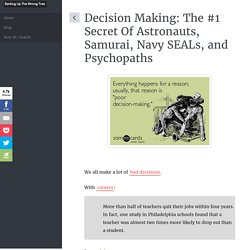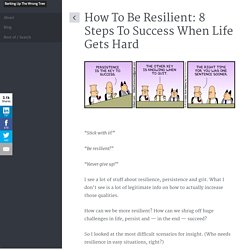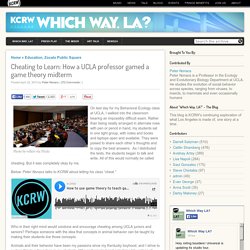

Behavioral Economics has Never Been Hotter. New York – Behavioral economics, a branch of economics rooted in psychology has gained tremendous cache in recent decades.

It has spawned a growing list of best-sellers such as Malcolm Gladwell’s Blink, Richard Thaler and Cass Sunstein’s Nudge, and Dan Ariely’s Predictably Irrational. It’s not just the success of the books; behavioral economics is one of the trendiest courses in universities across the globe. Unlike neoclassical economists, behavioral economists don’t see people as “rational actors” coolly weighing costs and benefits. Instead, behaviorists argue that people rely on “a set of instincts, biases, and cognitive shortcuts to make decisions.” A definition of behavioral economics — I've borrowed this one from the Guardian — is that it is the study of "how people actually make decisions rather than how the classic economic models say they make them. " The Godfathers of Behavioral Economics A Trendy Economic Theory “It helps me understand how my customers make buying decisions.
Welcome to Forbes. The #1 Secret Astronauts, Samurai, Navy SEALs, and Psychopaths Can Teach You About Good Decision Making. We all make a lot of bad decisions.

With careers: More than half of teachers quit their jobs within four years. In fact, one study in Philadelphia schools found that a teacher was almost two times more likely to drop out than a student. In our jobs: A study showed that when doctors reckoned themselves “completely certain” about a diagnosis, they were wrong 40% of the time. And in our personal lives: …an estimated 61,535 tattoos were reversed in the United States in 2009. So how can we all make better decisions? It’s “arousal control.” That’s a fancy word for keeping a cool head. In their book, Decisive, Chip and Dan Heath identify short term emotion as one of the primary causes of bad decisions.
Astronauts, samurai, Navy SEALs, and psychopaths. 150 Miles Above The Earth Is No Place For Panic It’s the 1960’s and NASA is going to send people to the moon for the first time. How do you make sure astronauts don’t freak out in the cold darkness of space where there’s no help? You’re NASA. No. How To Be Resilient: 8 Steps To Success When Life Gets Hard. “Stick with it!”

“Be resilient!” “Never give up!” I see a lot of stuff about resilience, persistence and grit. What I don’t see is a lot of legitimate info on how to actually increase those qualities. How can we be more resilient? So I looked at the most difficult scenarios for insight. When life and death is on the line, what do the winners do that the losers don’t? Turns out surviving the most dangerous situations has some good lessons we can use to learn how to be resilient in everyday life. Whether it’s dealing with unemployment, a difficult job, or personal tragedies, here are insights that can help. 1) Perceive And Believe “The company already had two rounds of layoffs this year but I never thought they would let me go.”
“Yeah, the argument was getting a little heated but I didn’t think he was going to hit me.” The first thing to do when facing difficulty is to make sure you recognize it as soon as possible. Sounds obvious but we’ve all been in denial at one point or another. M. Sum Up. Think Like a Navy SEAL: Training Lessons for Entrepreneurship. What's the best way to talk to yourself? What are proven tips that will help you achieve your goals? The 4 Psychological Techniques That Increased Navy SEAL Passing Rates. Cheating to Learn: How a UCLA professor gamed a game theory midterm. Photo by velkr0 via Flickr On test day for my Behavioral Ecology class at UCLA, I walked into the classroom bearing an impossibly difficult exam.

Rather than being neatly arranged in alternate rows with pen or pencil in hand, my students sat in one tight group, with notes and books and laptops open and available. They were poised to share each other’s thoughts and to copy the best answers. As I distributed the tests, the students began to talk and write. All of this would normally be called cheating. Below: Peter Nonacs talks to KCRW about letting his class “cheat.” Who in their right mind would condone and encourage cheating among UCLA juniors and seniors? Animals and their behavior have been my passions since my Kentucky boyhood, and I strive to nurture this love for nature in my students. Nevertheless, I’m a realist. Much of evolution and natural selection can be summarized in three short words: “Life is games.” Gasps filled the room. “None,” I replied, “You are UCLA students.